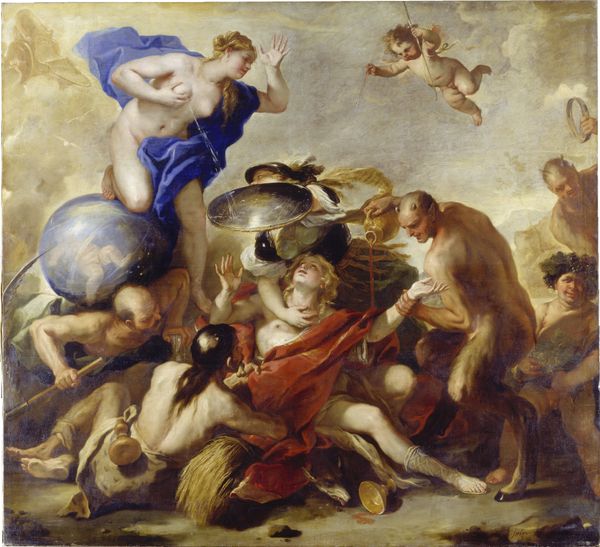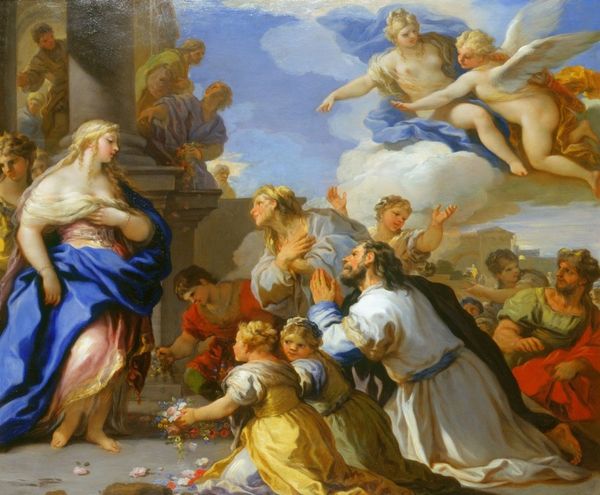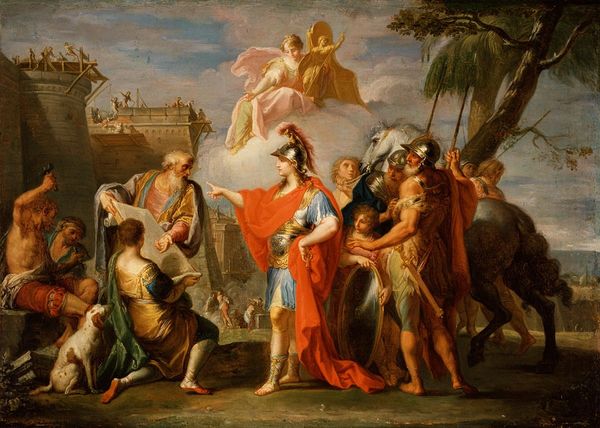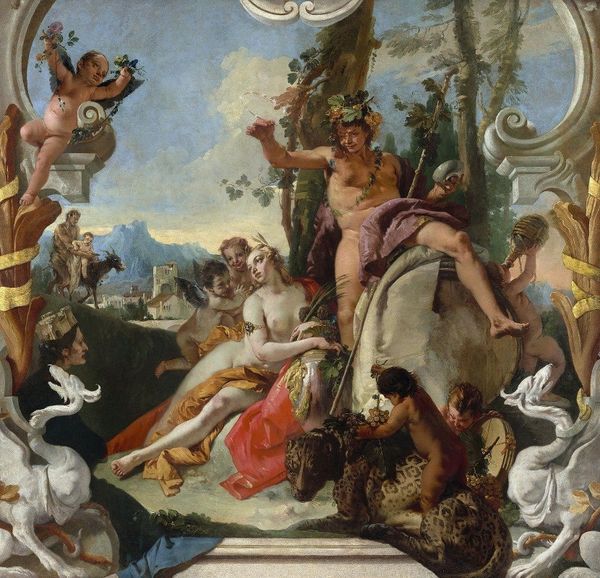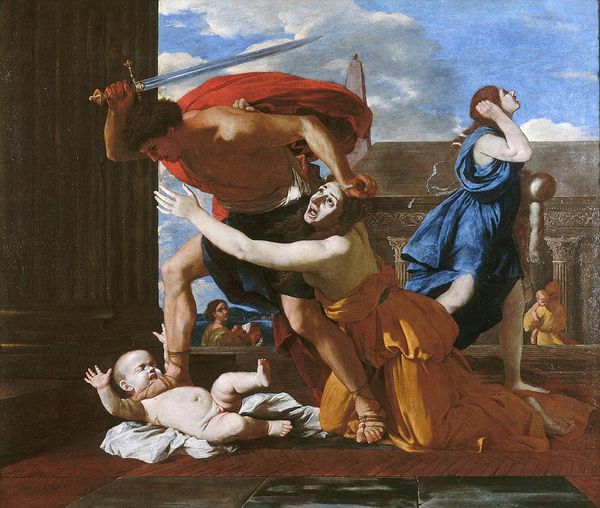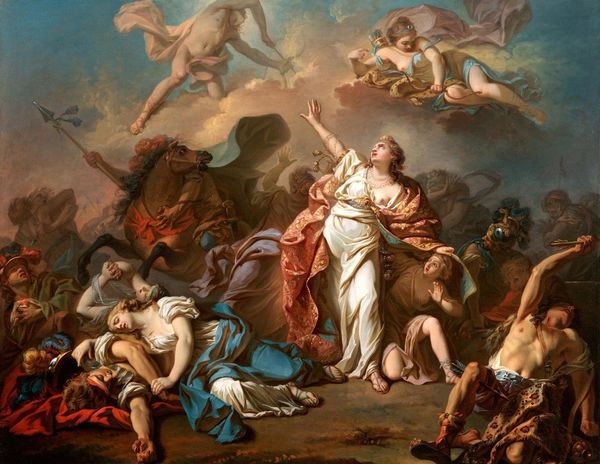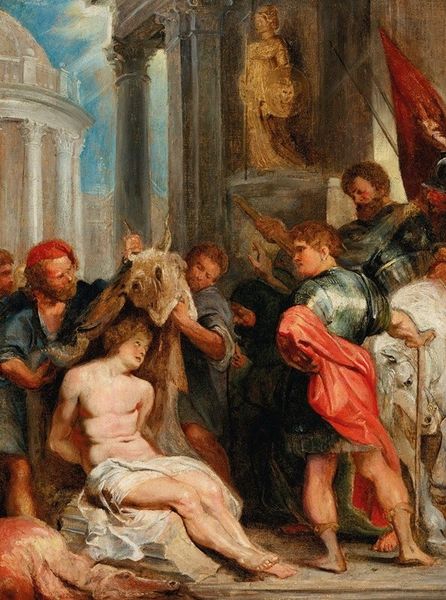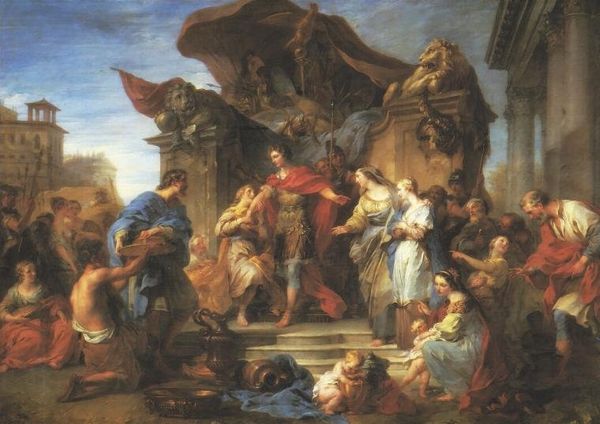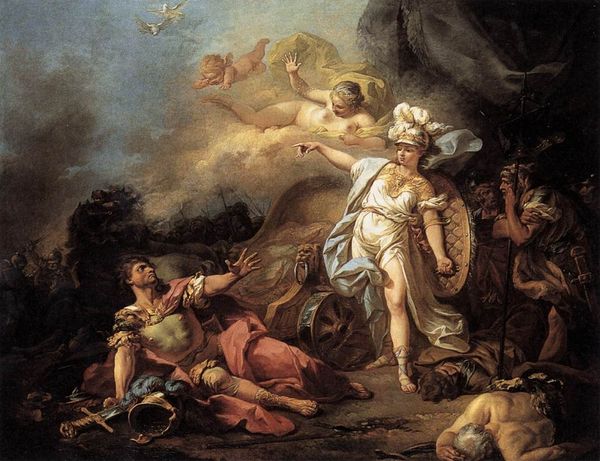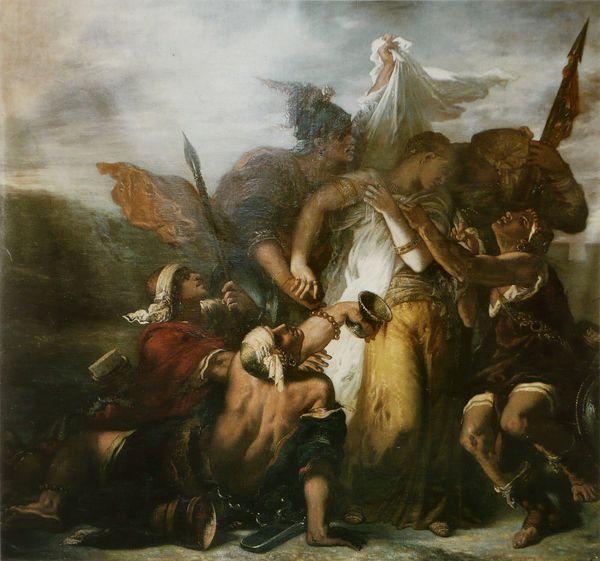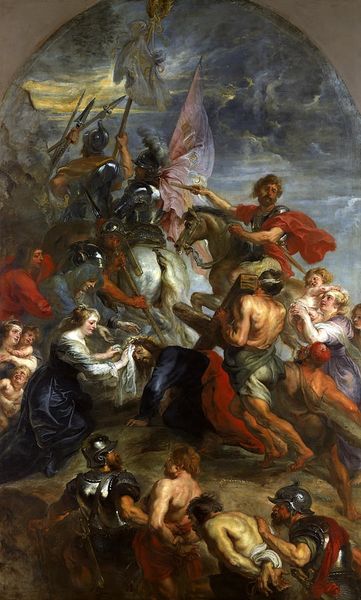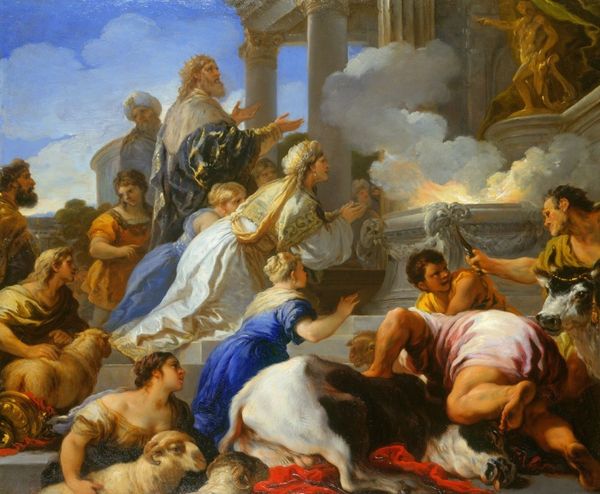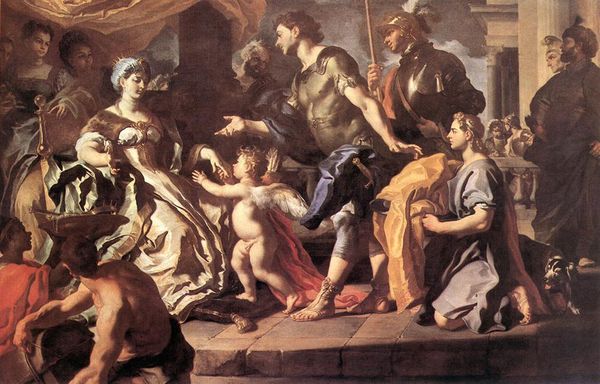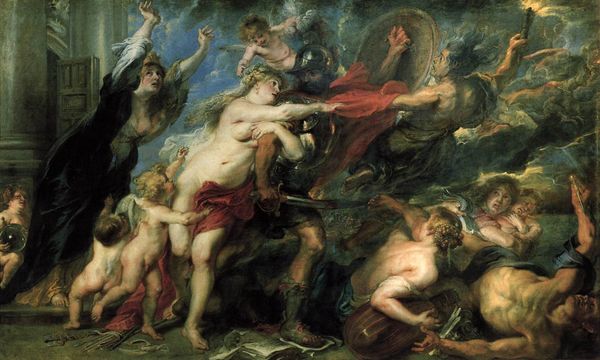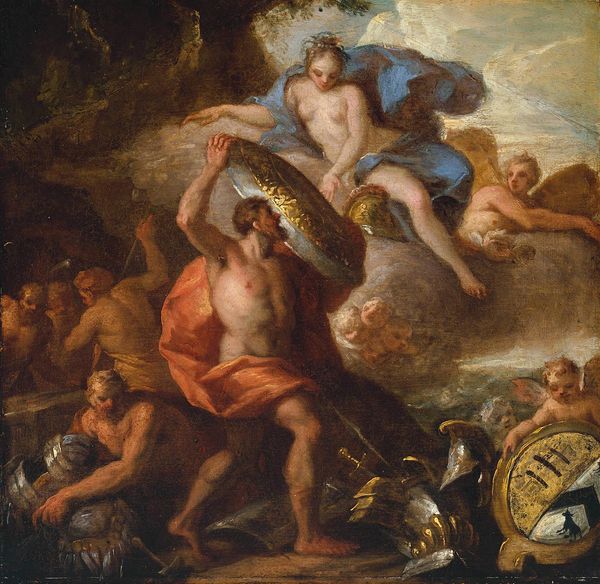
oil-paint
#
allegory
#
baroque
#
oil-paint
#
figuration
#
oil painting
#
mythology
#
history-painting
#
academic-art
Copyright: Public domain
Sebastien Bourdon painted "The Death of Dido" in the 17th century. It captures the final moments of Queen Dido, a figure from classical literature, who tragically took her own life after being abandoned by Aeneas. Bourdon, painting during a period when France was consolidating power, presents us with an image steeped in themes of love, betrayal, and sacrifice. The painting portrays Dido's suicide as a grand, operatic event. Her pale body, the dramatic gestures of those around her, and the divine intervention from above, all heighten the emotional intensity. But let's also consider Dido's story as one of a powerful woman in antiquity, who chose death over a life without agency. While Bourdon's painting may romanticize her death, it also immortalizes Dido's defiance. Her choice, however tragic, asserts her will in a world dominated by men and political machinations, inviting us to contemplate the intersections of love, power, and self-determination in the face of despair.
Comments
No comments
Be the first to comment and join the conversation on the ultimate creative platform.
